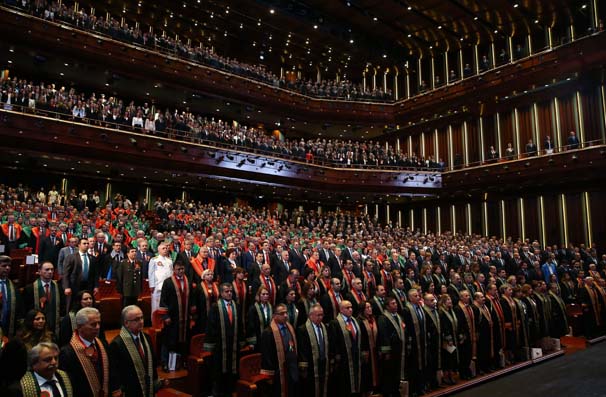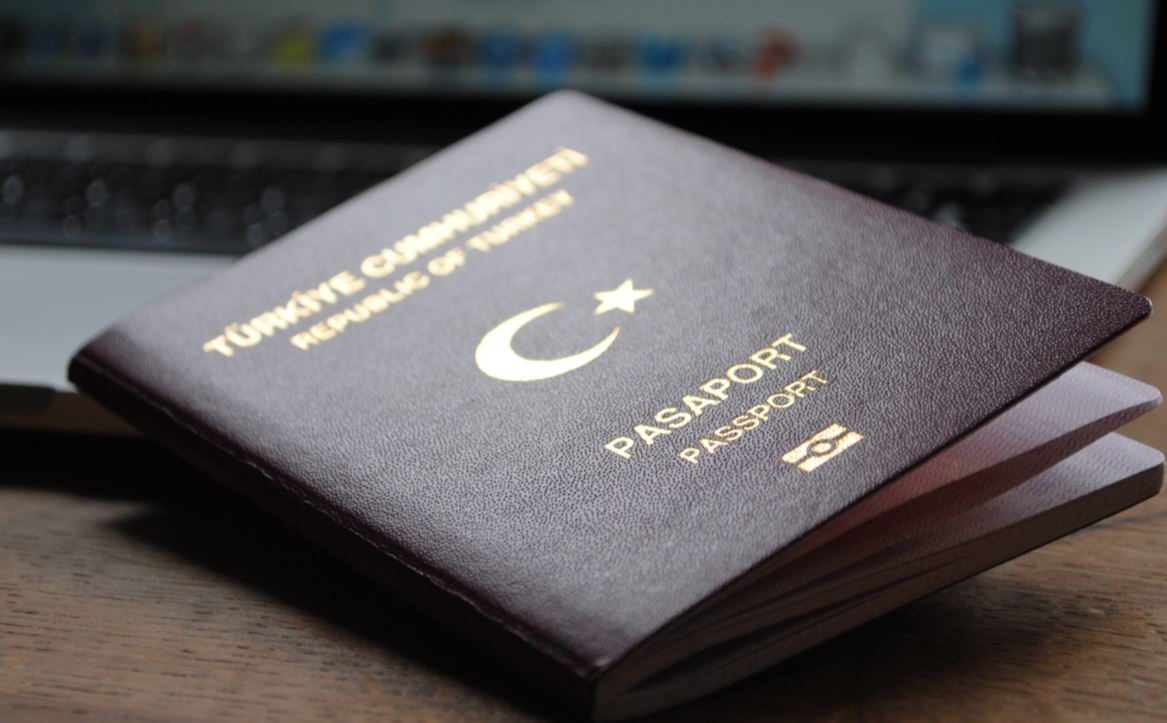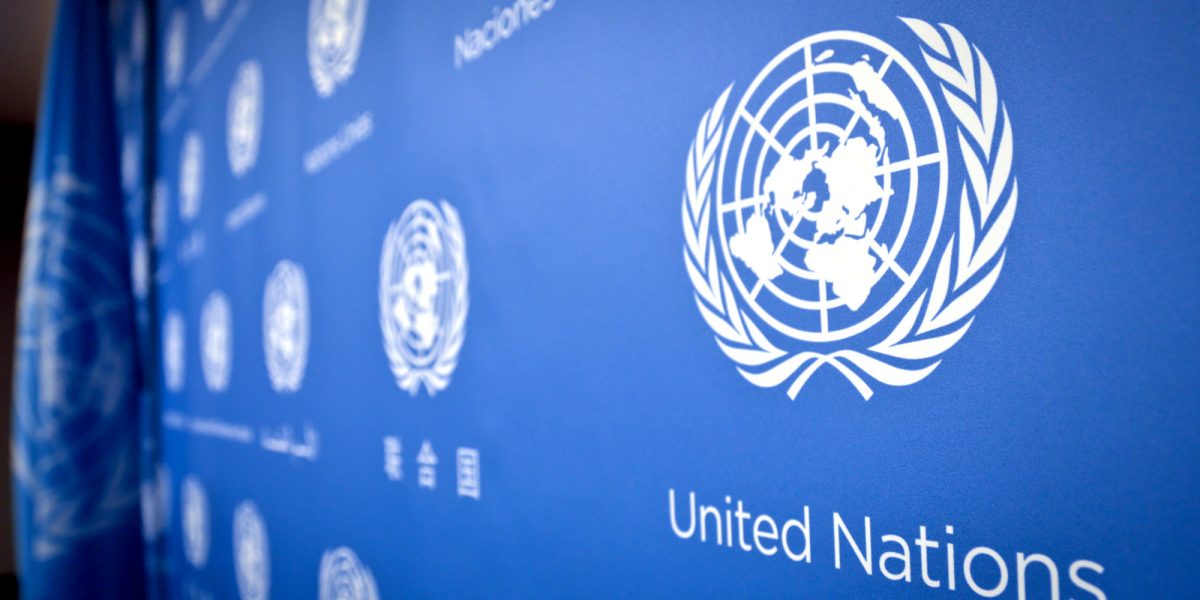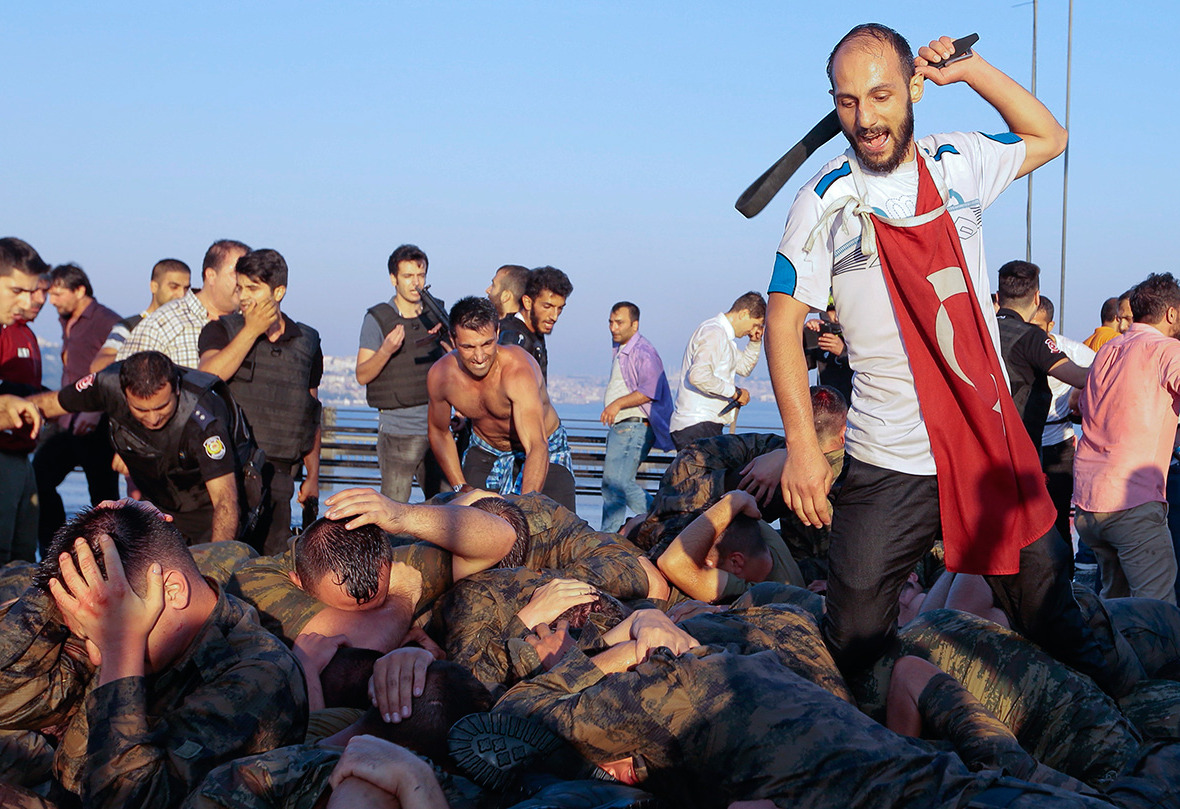Authoritarianism in the form of political Islam revealed its true face in Turkey during Gezi Park Protests, tested its sovereignty by unlawfully responding to operations against corruption scandals in December 17-25 period and by forming collusive alliances. After 15 July 2016, this authoritarian trend transformed itself into creating a “new ideology” and “building a new regime.”
With the announcement of State of Emergency, which was declared right after a questionable and puzzling coup attempt and being vastly criticized for its legitimacy and technical justifications, Turkey now started to actually live by the new authoritarian regime in full scale, whose upcoming steps were heard for quite some time. This is an antidemocratic and dictatorial regime where almost all legislative powers of national assembly, executive powers of government and judicial powers of the courts are summoned in one person’s authority, managed and ordered by him by the help of his oligarchic and mafia-type team. This new order, which aims to control all areas of life in Turkey, especially of economy and finance, under one man’s authority, is using the State of Emergency as a means to blatantly and comprehensively purge against all the opposing groups and to the ones who has not declared their full devotion to the President himself.
Main building blocks of this authoritarian one-man regime are being built by the Decree Laws under the cover of precaution and on the plea of re-establishing peace and order. Even these Decree Laws are being adopted by The National Assembly with only slim margins due to the overwhelming majority of the ruling party AK Party, who is under the authority and control of a single man, they cannot be reviewed or audited by the judicial power, whose authority is constantly pacified or eradicated after 17-25 December prosecutions.
On the other hand, these Decree Laws, containing hundreds of pages and appendixes, includes lists of thousands of shutdown institutions, organizations and media outlets as well as publicly announcing to the whole world the lists of hundreds of thousands of ousted public officials, are being used to reshape Turkey’s most important and well established institutions from top to bottom and making the state apparatus ready for this new regime.
Decree Laws in question are aimed to make comprehensive changes clearly against the current constitution and legislation. Their approval by the cabinet and enactment in only a few days after the coup attempt and announcement of the State of Emergency raises reasonable and serious doubts on them to be pre-prepared and waiting on call for the right moment and place. This situation strengthens the possibility of a dictatorial power that has been plotting and preparing the ground for the conditions of a state of emergency for a long period of time in order to alter the state apparatus and the regime completely.
It becomes more and more obvious that the failed coup attempt, behind which the scenes have not been revealed so far, is “a gift from God” for someone who wants to establish its own closed and authoritarian regime. Together with the state of emergency the failed coup is used as a means to seize all the power and misuse it to annihilate democracy and rule of law. (http://www.bbc.com/turkce/haberler-turkiye-36822331)
From this perspective, it is of vital importance to understand, for the future of democracy in Turkey, the real aspects and implications (which is beyond temporary security precautions permitted by the Turkish Constitutions) of these State of Emergency Decree Laws, suspected to be prepared behind the closed doors of the Palace in collaboration with shady groups with suspicious pasts and then sent to the government just for approval. Within the following paragraphs the State of Emergency Decree Laws, which are the basics of closed, authoritarian and anti-democratic new regime in a vacuum are reviewed under 4 main headings.
THE CONSTITUTION IS NULLIFIED
A. Constitutional framework and constitutional review is made un-executable and hence the Constitution itself is “de-facto” suspended. Contrary to its previous decisions and by wrongly reasoning article No. 148 of the Constitution for the Decree Laws, “national will” is by-passed and a new Constitutional order is being established. None of the articles, with the exception of no 148, can be executed anymore.
Article 148 states that “The Constitutional Court shall examine the constitutionality, in respect of both form and substance, of laws, decrees having the force of law and the Rules of Procedure of the Grand National Assembly of Turkey, (As amended on September 12, 2010; Act No. 5982) and decide on individual applications. Constitutional amendments shall be examined and verified only with regard to their form.
However, decrees having the force of law issued during a state of emergency, martial law or in time of war shall not be brought before the Constitutional Court alleging their unconstitutionality as to form or substance.” Based on this article Constitutional Court decided that it has no right to review the State of Emergency Decree Laws.
This decision should be read as all the Constitutional institutions are actually made nonfunctional including the Constitutional Court itself, who dismissed its elected members with the instructions from the government and demonstrated that it is totally controlled and directed by them and hence opening the gates for a closed political system either voluntarily or involuntarily.
With the Decree Laws both legislation and jurisdiction powers are started to act under the control and authority of the Executive. Now there is no mechanism in place that can balance and audit a Decree Law, which is later approved by the Assembly, ordering the shutdown of the Constitutional Court. As a matter of fact, this scenario was implemented against many state institutions.
With a State of Emergency Decree Law (Decree Laws no 667, article 3 which was later legislated by the national assembly and turned into a law) higher judicial bodies, which are reviewing the legislation, judiciary and executive powers, and HSYK (Supreme Council of Judges and Prosecutors) were instructed to dismiss their members from their duties. This way, 2 of the members of the Constitutional Court were dismissed and the balance within the higher judicial bodies, including the Constitutional Court, and HSYK was politically altered.
As a result, with only taking article 148 as a basis, the Constitutional Court, assembled with its new members, decided that it has not the authority to review Decree Laws, contrary to its previous decisions of annulment on Statutory Decrees of the past and hence denying its existence. The meaning of this decision should be understood as the constitutional order is boiled down into one single article (art. 148), which opens a wide path for State of Emergency regime and its unquestionability, leaving the state system to the mercy of the executive power, which is under the control of the non-liable President. Hence the constitutional order as we know is actually cease to be in effect.
B. The democratic Constitutional Order and its soul, which was generated by the amendments made in 2001 in the Constitution in order to enable EU harmonisation, is now seen as idle and there is a determined turn back to the coup of 1980’s prohibitory and restricting provisions.
Article 14 of the Turkish Constitution states that “No provision of this Constitution shall be interpreted in a manner that enables the State or individuals to destroy the fundamental rights and freedoms recognised by the Constitution or to stage an activity with the aim of restricting them more extensively than stated in the Constitution. The sanctions to be applied against those who perpetrate activities contrary to these provisions shall be determined by law.”
Constitutional Court, followed by the rest of the judiciary bodies, are undermining article 14 of the Constitution, which expands the individual rights and freedoms to outline the practices of the State of Emergency. The article in question should be taken into consideration with the upmost importance during the application of State of Emergency Decree Laws for two reasons; this amendment was made to the constitution at a later stage (2001) and it is a libertarian regulation that should be interpreted as embracing the whole Constitution.
Article 14 of the constitution explicitly states that no provision of the Constitution, including the ones related with State of Emergency, shall be interpreted in a manner that enables the State or individuals to destroy the fundamental rights and freedoms. In other words, Article 14 states that State of Emergency regulations and practices cannot be executed as they are executed now and Constitutional audit is possible for the Decree Laws as well. Up to now no authorised person and institution or main stream media outlets referred or mentioned this topic.
JUDICIAL BODIES PUT UNDER CONTROL OF EXECUTIVE BODIES
In addition to its discrepancy to the realities of life and economy, Decree Laws are abolishing judicial independence and the principle of separation of powers, which is one of the main elements of a democracy and a republican regime, and directly instructing the courts about the decisions they should take independently.
For example, Decree Laws no 669 (art 4) and 673 (art 10) is banning to file for suspension for bankruptcy, instructing courts to refuse these kind of applications, and lifting previous filings in the favor of the companies and businesses pointed by the executive power in the basis of vague claims or judicial activities that does not have provision in nature (like investigations).
The courts are being banned to give a ruling on the stay of execution, which is an inseparable element of judicial control and a precautionary action. Another instruction by the Executive power to the courts is to give a ruling of refusal for the applications against the administration concerning the closed institutions, organizations and media outlets. Also the Offices of Bailiff and Executions are instructed to stop commencing of execution proceedings for bankruptcies (Decree Law no. 675, art 16). Within the same decree, judicial courts are banned from handling cases, where administrative courts gave a ruling about the aforementioned situations.
Many other instructions given to the courts by the State of Emergency Decrees are going to be reviewed in the following headings.
A NEW REGIME SET UP THROUGH DECREE LAWS
A. Permanent and substantial institutional arrangements which could only be subject to legislative processes and decisions are being made by State of Emergency Decisions and verdicts. These arrangements are going very beyond of precautions needed for state of emergency, irrelevant to ensure the peace and security.
- Although stated arrangements must be made by regular legislative action due to its scope and topic, de facto situation is brought out by the Executive, using the Legislative branch’s authority illegally. (For example, especially Decree Law no. 669 (adopted by Law no.6756).
- Army War Colleges, Military High Schools, Non-commissioned schools, Gülhane Military Medical Academy, Military Health Institutions are shut down or handed over.
- On the one hand, above military organizations are closed, Gendarmerie and Coast Guard Academy is established and subordinated to Ministry of Interior on the other hand.
- Provisions concerning military justice and judges, military academies are totally readjusted and military justice is put under the influence of the Executive branch via Ministry of National Defense.
- The composition of the Supreme Military Council is totally open up to political influence.
- Chief of Staff’s appointment procedure is intervened and his executive authorities are abolished.
- Military force general commanders are directly subordinated to the Minister.
- Education and selection system of officer and non-commissioned officer is completely changed and staff structure focuses on proximity and loyalty to the ruling party AK Party is becoming the new approach.
- Besides, substantial changes are imposed on justice, security and interior systems; essential arrangements concerning schooling, high education and health system, which are completely irrelevant to state of emergency and required long-term planning and study, are put into practice.
- Selection procedure on rector assignments is terminated.
- President’s directly appointing rector between 3 candidates whom the Council of Higher Education (YOK) assigns and only 3 years’ professorship experience is needed. If the president does not appoint rector between those presented professors within one month and the Council of Higher Education (YOK) does not present new candidates, President’s arbitrary rector appointment procedure is the norm (Decree Law no.676, article 85). President can appoint somebody as a rector whoever he wishes.
- Rector appointments of Foundation Universities are subjected to the President’s approval.
- The Council of Higher Education Supervisory Board is rearranged. (Decree Law no.676, article 86)
- Totally irrelevant to the state of emergency arrangements about opening private courses are made. Maarif Foundation, which is previously established as an alternative to Cemaat schools, is given authority to appoint public servants abroad with highly privileged conditions. (Decree Law no.676, article 83)
- Contracted teachers are recruited without any Public Personnel Selection Exam in order to fill the vacancy of thousands of teachers dismissed from civil service. They are doing that in order to make those temporary contracted ones as permanent staff in the future under the cover of the “Development Priority Region.” (Decree Law no.674, article 2)
- Gendarmerie and Coastal Guard are completely subordinated to the Ministry of Interior and reshaped from top to bottom by Decree Law no.668. (adopted by Law No. 6755)
- Contractual personnel employment system, which is expected to have very serious effects on health personnel system, is established in order to fill the vacancy of thousands of health personnel dismissed from civil service (Decree Law no.676, article 76).
- Almost all articles of some Decree Laws consist of substantial changes on comprehensive laws which may be considered as “framework law.”
- Military academy students who are just about to graduate are not accepted to military offices and also after closing the military high schools those students lost all their gaining.
- Without even asking public personnel selection exam (KPSS) for high school and its equivalent degree holders can become a special operations police after just an oral interview under political influence (Decree Law no. 671, article 26).
- Employment procedure without KPSS is not limited to Special Operations Police, but also to health personnel and teachers. Although there are thousands of career candidates who have passed KPSS and waiting to be employed, existing civil servants, who are working at the Ministry of Defense and Turkish Army Force, are given career expertise right. (Decree Law no.676, article 61)
- There are arrangements even on the use of military social facilities depending state of emergency. (Decree Law no.674, article 47)
- Telecommunication Communication Presidency (TIB) which is chosen as a target after 17-25th December investigations and its legal listening records being wanted to be eradicated, is totally shut down; its authority and duties are handed over to the Information and Communication Technologies Authority (BTK). (Decree Law no.671, article 21-23)
- Authority of Province Investment Monitoring and Coordination Presidencies, which were previously established but could not be in the status of full capacity, are increased and they became as a private budget institution with legal entity. This situation not only complicates to consider local public will on investment but also increases the disarray and complexity of public investment, budget and tender execution. (Decree Law no.674, article 35)
- In place of thousands of dismissed qualified and experienced public employees, the ones who are low profile and totally being servant to politicians are given job opportunities by interviewing them under the political influence and without exam selection. Transparent, fair, rivalry and qualification based Personnel recruitment system in the National Police and has been abolished in the pretext of 17-25 December operations. But this time, non-transparent, unfair and political based recruitment system made widespread to all public servants, foremost officers, non-commissioned officers, teachers and health personnel by depending on the pretext of 15 July Coup attempt. In place of dismissed and mostly arrested experienced judges and public prosecutors, candidate judges and public prosecutors are immediately assigned by HSYK (High Council of Judges and Prosecutors) which works under the influence of executive. Giving application rights to regular university students to become war pilots whose qualifications are very demanding and hard to fulfill (Decree Law 671, 6757 numbered Law article 3) and diverting acceptance system of officers and non-commissioned officers to outside resources instead of institutions which give military education are some of the examples of employing partisan staff at the government.
MOVE TO BECOME INTELLIGENCE STATE
A. Executive power make judicial decisions by grasping judiciary functions and de-functionalizing normal adjudication methods; dismissals of employees and students and permanent purges are executed on the base of slanders and intelligence reports which are totally open to the Executive power’s manipulation and influence.
Despite the existence of obviously conflicting provisions of the Constitution, conversion of the decree law no.667 into a regular law by the Parliament (with the law no. 6749) legalizes the dismissal of public servants without any investigation and legal procedure by a government controlled meager council /committee’s fallacious and subjective evaluations. (Decree Law 667 and adopting law no. 6749)
Thus the disciplinary investigation provisions of Public Civil Servants Law no. 657 are terminated and public servants’ guaranteed rights removed. The precondition for civil servants’ recruitment examination (KPSS) for mass hiring is terminated. People are dismissed according to the allegations on 2010 of KPSS although the prosecution process has not been completed, people who were recruited with other KPSS exams are dismissed by the Executive power’s orders without any concrete evidence (Decree Law no. 670 article 6).
On the pretext of KPSS settlements, decisions for the reimbursement of the compensation of the courts are prohibited in cases which were opened or will be opened in the future by people who have been dismissed from their job. (Decree Law no. 675, article 17/3)
While many criminal sanctions based on the court provisions are subject to a certain time constraint or future re-evaluation, transactions with Decree Laws are carried out irremediable.
Documents such as licenses and certification that show professional competencies of people who have been dismissed by unjustified and groundless accusations are also cancelled and those people are even prevented to carry out their profession on the private sector.
Even if there is no provision in this respect on Decree Laws, it is heard that the people who are dismissed are annotated in the Social Security Institution (SGK) records and thus they are also prevented from finding jobs in the private sector.
Again, people who have been labeled and dismissed from the government. In contrast to Turkish legislations, they get the real estate registry annotated without any judicial decision and people are prevented from evaluating those real estates and establishing a new business and life style.
In addition to this, it is tried to prevent the objections to be made by means of normal judgments against judicial judgments formed by the Execution.
By interfering with field of activity of the judicial institutions, decisions to stop the execution, which will prevent the growth of the damage and problems that cannot be compensated, are forbidden.
Freedom to seek rights, the most fundamental human right and universal legal norm, is being abolished. It is forbidden even to demand compensation for institutions and establishments that are shut down by Decree Laws. (Decree Law no. 667, article 6).
B. There are considerable doubts about the information and documents on which the extrajudicial executions provisions of the Decree Law are based.
Decree Laws issue claims that those people are members of “terrorist organisation”, contact with and link to it, by based on doubtful information, documents and news.
First of all, it is unknown how and in what way terrorist organisation is defined. Although National Security Council (MGK) has taken a decision, besides it is not certain whether this decision is based on concrete evidence, events and justifications.
It is unclear how and in what manner, how and by whom the information and documents are obtained, identified, used, and what kind of judgment is made in both the organization description and the closing and dismissal provisions.
As acknowledged by the authorities, misrepresentations have been made even to institutions such as associations, foundations, schools and hospitals which are under control in all respects according to their findings and evaluations.
Some decree laws have included special amendments to correct and remove these transactions. But it will not be possible to repair the reputation of individuals and institutions that have been declared terrorist organization members or supporters all over the world.
Source: turkeypurge.com
- Institutionalized Torture Policy Report – Turkey - 11/11/2021
- Questions on the passing away of a dismissed judge in jail - 26/05/2017
- OPINION- Reaping the whirlwind - 26/05/2017



